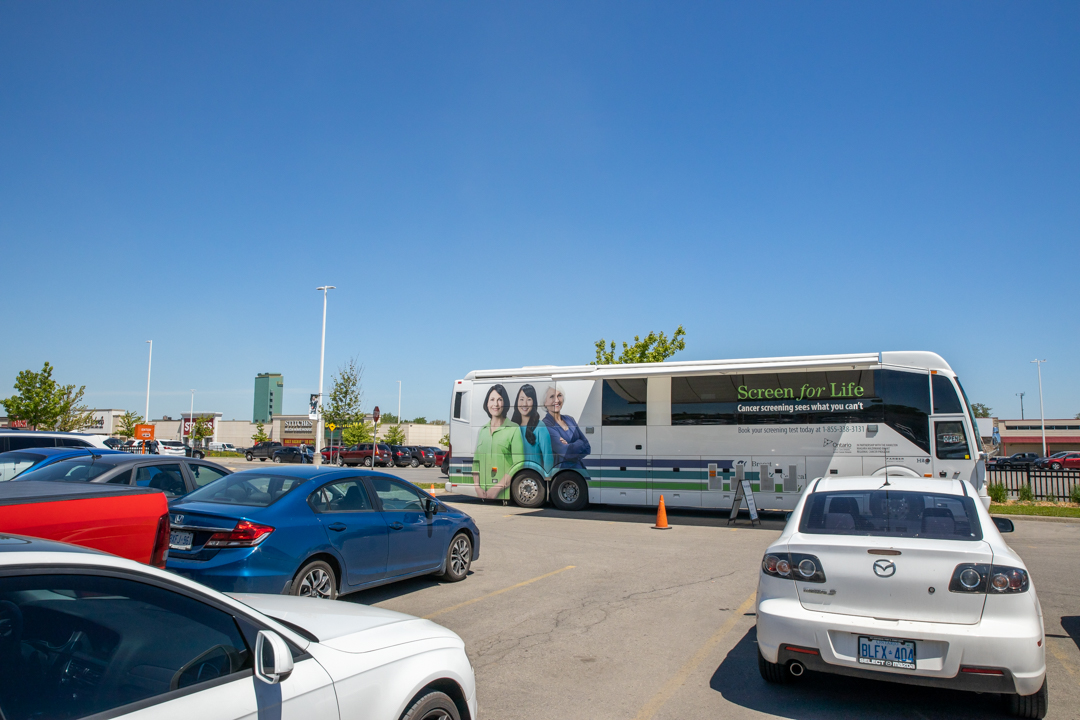Debra Jonathan, Register Nurse and director of well-being at Six Nations Health Services, and is a former Indigenous cancer lead with the Hamilton Niagara Haldimand Brant Regional Cancer Program.
Well over a decade ago, registered nurse Debra Jonathan and fellow health-care professionals from Six Nations of the Grand River began meeting over concerns about the increasing number of Indigenous adults who were dying young from cancers that were potentially curable and in some cases even preventable.
“We decided that more needed to be done to combat cancer among Indigenous people, including promoting cancer screening tests that check for signs of breast, cervical and colon cancer," says Jonathan, who at the time was the nurse in charge at Gané Yohs Community Health Centre in Six Nations of the Grand River.
Jonathan is now director of well-being at Six Nations Health Services, and is a former Indigenous cancer lead with the Hamilton Niagara Haldimand Brant Regional Cancer Program, where her role included promoting cancer screening to Indigenous people across the region. The Regional Cancer Program is based at Hamilton Health Sciences (HHS)' Juravinski Hospital and Cancer Centre.
“Back then, cancer was not a topic that people felt comfortable discussing or learning about because of the sad outcomes that we see in many of our families," says Jonathan. “We needed to provide more education, including promoting the benefits of screening tests." All three cancer screening tests are provided free by the province to help catch cancer early, when it's easier to treat.
Around the same time as these community discussions were taking place, the Regional Cancer Program reached out to the group, asking about opportunities to work together to promote the cancer screening tests among Indigenous people.
The partnership they formed paved the way for regular visits by the Mobile Cancer Screening Coach to Six Nations of the Grand River and Mississaugas of the Credit First Nation (MCFN). “The coach has become a staple here," says Jonathan.
The coach program, which launched in Hamilton in September, 2013, began visiting both Six Nations and MCFN in 2014. The program has also expanded to several Hamilton and Niagara communities over the years, including Indigenous organizations in urban areas.
Mobile cancer screening
 The coach visits communities with low cancer screening rates by partnering with community organizations to provide on-site cancer screening tests and support to quit smoking.
The coach visits communities with low cancer screening rates by partnering with community organizations to provide on-site cancer screening tests and support to quit smoking.
Inside the coach, an HHS registered nurse, mammography technologist and a clerk offer mammograms, Pap tests and the take-home test for colon cancer screening through the province's Ontario Breast Screening Program, Ontario Cervical Screening Program and ColonCancerCheck program.
The coach is equipped with a state-of-the-art digital mammography room for breast screening and private exam room for Pap tests. Anyone who is eligible can also arrange to get the colon cancer screening test, called FIT, sent to their home. The team also offers support to people wanting to quit smoking. Visitors can drop in at their convenience or book an appointment in advance.
Building trust
“It took time for people in our community to warm up to the coach," recalls Jonathan. “It can be difficult for Indigenous people to engage with health care for many reasons."
Jonathan and other Indigenous supporters stepped up as advocates and ambassadors for the coach program, especially in those early years, even greeting community members at its doors, offering tours and talking about the benefits of cancer screening.
“People eventually started to feel comfortable enough to book appointments, and due to friendly staff and positive experiences, they started to tell their friends and family," says Jonathan. Over time, the Indigenous community grew to embrace the coach, its staff and their regular visits.
In 2019, when the province announced that funding for the coach was being re-directed, and the service would no longer be offered, the Indigenous community was among the program's strongest champions, urging the province to reconsider.
“I'll never forget the day we found out that the province had reversed its decision and the coach program would continue," says Jonathan. “Staff at the health centre could be heard celebrating the news that the coach was staying. It was such a relief."
Health care equity, on wheels
“Over 10 years of providing mobile cancer screening is a milestone worth celebrating," says Neil Johnson, regional vice president of Ontario Health for the Hamilton Niagara Haldimand Brant Regional Cancer Program, and vice president of oncology at HHS.
Many people face more than one barrier to screening, which can include a lack of transportation to visit a mammography site or their family doctor, or having no family doctor. There could be language or cultural barriers, which the coach helps overcome through its translation service and staff cultural training. Other barriers include a lack of trust in the health-care system, isolation, homelessness, mobility challenges or a work schedule that makes it difficult to seek health care during the week.
“A lack of equity is one of the most significant issues impeding positive health care outcomes today," says Johnson. By visiting communities with low screening rates, the coach team helps to break down barriers many people face in getting screened for cancer or finding help to quit smoking. The coach program is committed to health-care equity, where everyone has a fair chance to live their healthiest lives. We are grateful to our Indigenous partners for helping the coach program become a staple in their communities."